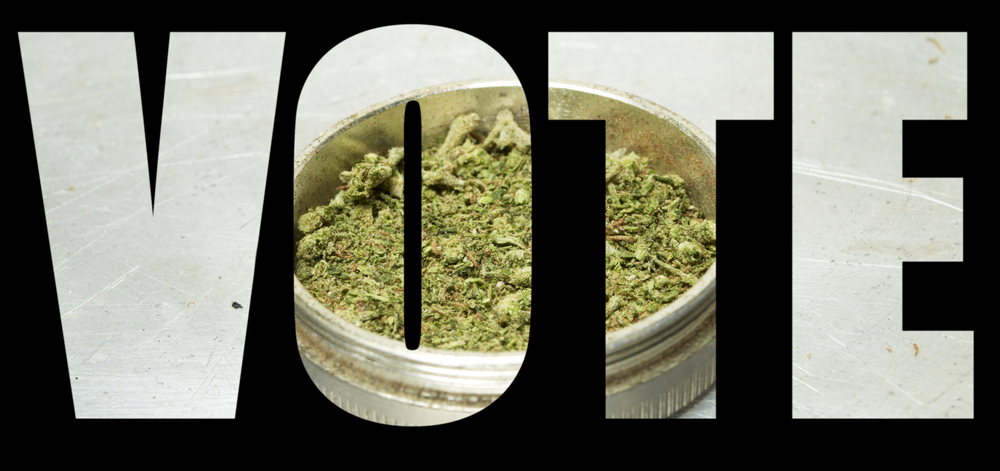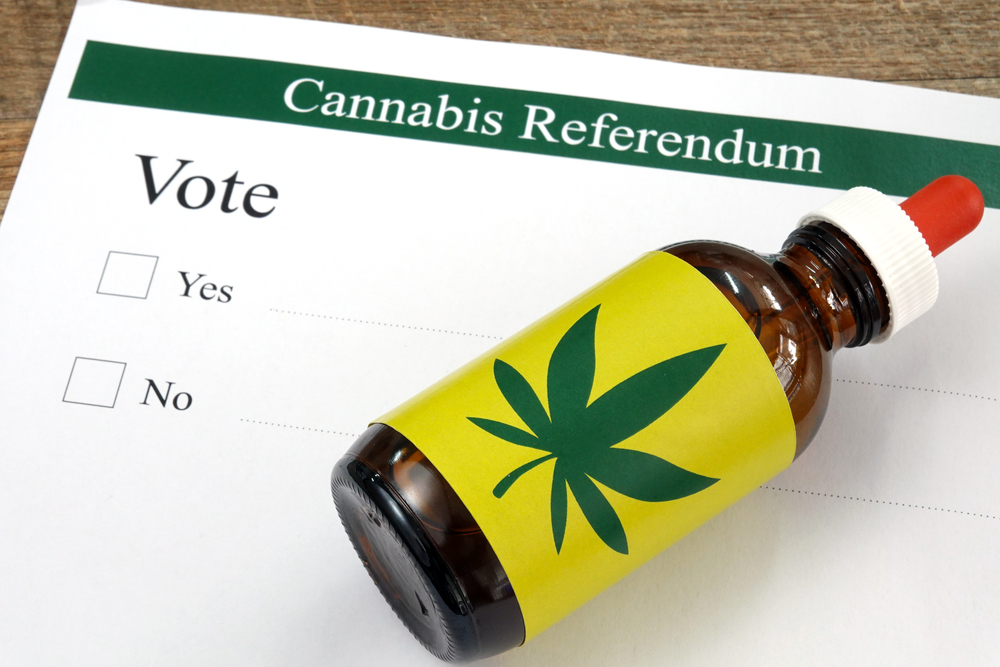
The fight for legalized medical marijuana and adult-use isn’t over in South Dakota. On November 2, 2020, state voters moved to legalize both a medical marijuana program and the legalization of recreational marijuana. That made South Dakota the first state to launch both initiatives at the same time.
It is no secret that South Dakota Governor Kristi Noem (R) was against the state legalization of cannabis. The governor has not softened her stance despite overwhelming support by constituents in her state for the decriminalization of cannabis. Less than three days after the November election, Noem went on record with the following statement of opposition:
“I was personally opposed to these measures and firmly believe they’re the wrong choice for South Dakota’s communities.” According to Joe Sneve for the Argas Leader, Gov. Kristi Noem launched an extensive advertising campaign against marijuana legalization in the months leading up to the election. Noem further stated: “We need to be finding ways to strengthen our families, and I think we’re taking a step backward in that effort.”
Further to her opposition to legalized adult-use and medical cannabis, Governor Kristi Noem feels that the mass expenditure required to expand administrative staffing, licensing, and enforcement is going to place a financial strain on the state when South Dakota faces a fiscal shortfall to be announced in January and is carrying a $1.15 trillion debt.

Pennington County Sheriff Kevin Thom and Highway Patrol Superintendent Col. Rick Miller sued on Friday, November 20th. The lawsuit intends to declare that all ballots cast in the election (for or against Amendment A) be legally nullified because a vote to legalize cannabis in South Dakota would change the state Constitution.
Other states that have launched medical cannabis programs were required to go through the same steps of amending the state constitution to add new rights and protections for consumers, patients, and cannabis business owners. So this is not new. It has happened in every state that has since legalized cannabis.
The problem is that the law enforcement duo is also backed by Governor Kristi Noem, according to a report by Marijuana Moment. And while South Dakota voters cast ballots in favor of both state initiatives, taxpayer money or state funds are being used to launch this legal action to overturn the vote.
The grounds for the legal action claim that the ballots cast for Amendment A were improperly presented to voters. They want to declare all votes cast for (or against) Amendment A from the election tally.
“The South Dakota Constitution is the foundation for our government, and any attempt to modify it should not be taken lightly. I respect the voice of the voters in South Dakota; however, in this case, I believe the process was flawed and done improperly, due to no fault of the voters.”
– Pennington County Sheriff Kevin Thom

The legal challenge was filed in the Sixth Judicial Circuit Court. Amendment A won with a 54% voter endorsement on the day of the election. Because Amendment A allows for the legalization and regulation of marijuana for adults (21 years or older) and the laws to regulate medical cannabis and hemp, it violates a state constitutional provision. That not more than one proposed subject should be included on a state question and ballot for voters.
In other words, there should have been multiple state questions to comply with the South Dakota constitution. Each one addressing one aspect of regulation. Including business licensing, enforcement, zoning, types of cannabis legalized (and potency), caregiver legal requirements, cultivation permits, and more. That would have been a lot of questions and a huge ballot. Like most states, South Dakota limits how many amendments may be included on a ballot.
Since there were more questions on the ballot than were permitted, they intend to invalidate the votes that legalized both medical cannabis and adult-use in the state. In 2018, South Dakota amended the constitution and stated, “no proposed amendment may embrace more than one subject.”
There is a genuine chance that if the Sixth Judicial Circuit Court in South Dakota rules in favor of upholding the constitutional subject limitation, one or both cannabis measures may be repealed for the next election. That could mean a big fight in court against Thom, Miller, and Gov. Noem.
The state has a current mandate to start issuing medical cards by July 1, 2021. Suppose the will of the voters stands. Governor Kristi Noem assumed office in 2019, and her term as Governor of South Dakota ends on January 2, 2023. She is a former member of the U.S. House of Representatives and the South Dakota House of Representatives.
It is speculative but plausible that Gov. Kristi Noem and agencies that did not support cannabis legalization did not believe that the vote would carry. South Dakota is a conservative state, and the Republicans won 3 electoral votes with 61.8% of the state vote.
If Governor Noem and anti-cannabis groups felt that the vote to legalize had a small chance, then allowing the multiple topic questions on the ballot would have been an excellent strategy. Should the vote not carry, there would be no need to proceed with legal opposition. But if the vote to legalize marijuana did earn majority support? This small constitutional technicality would prove to be an “Ace in the pocket” to undo state voters’ expressed will.
It will be interesting to see whether Governor Noem, Miller, and Thom successfully overturn the vote to legalize medical and adult-use cannabis in South Dakota. And whether a legal defense will be prepared by cannabis operators, including large chain dispensaries and cultivators who are ready to set up shop and start selling pot in the state.
Including board-certified physicians who are getting ready to help patients with the medical card application process.
Featured Image: jovannig | Deposit Photos
No Information on MarijuanaDoctors.Com should be used to diagnose, treat, prevent or cure any disease or condition. You can view our Full Disclaimer here.